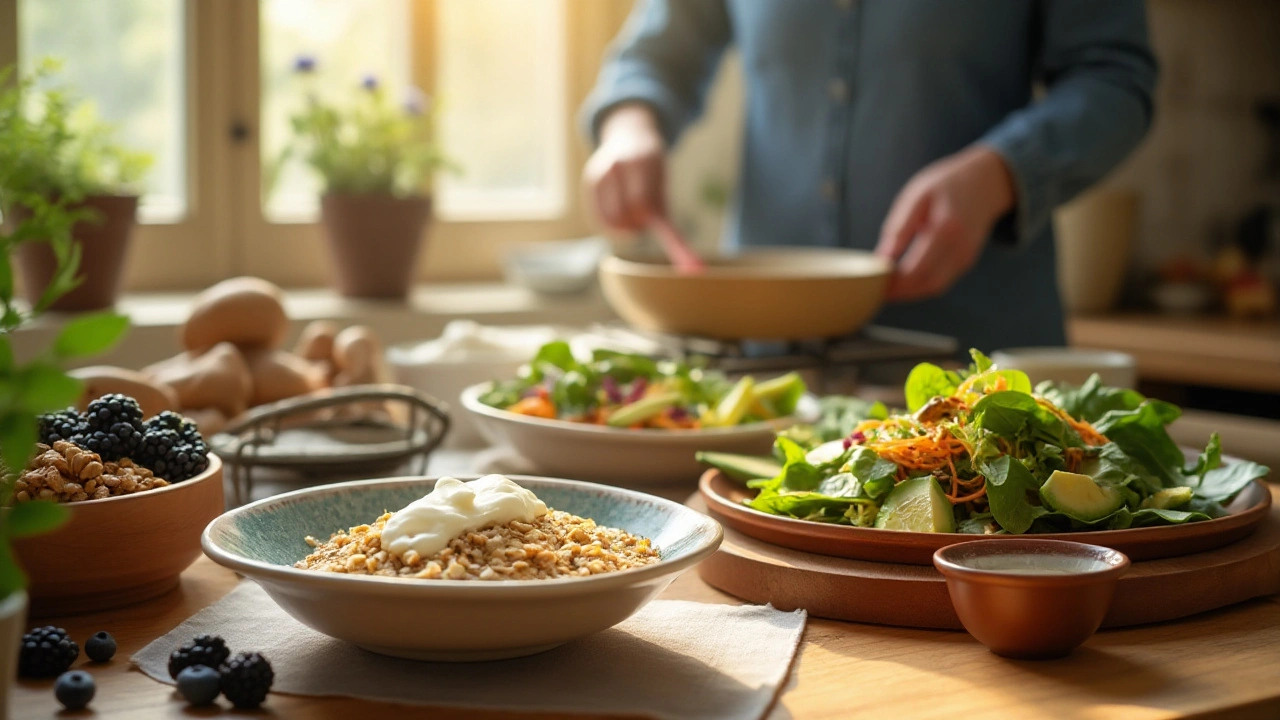Your gut holds trillions of microbes that affect digestion, mood, and immunity — and the foods you choose shape that community every day. Pick the right foods and you can ease bloating, improve regularity, and even feel calmer. Skip the complicated rules; focus on a few smart swaps and steady habits.
Fermented foods: plain yogurt, kefir, sauerkraut, kimchi, and miso add live bacteria that can help balance gut flora. Try a 4–6 oz serving of yogurt or a spoonful of sauerkraut with a meal.
Prebiotic foods: onions, garlic, leeks, asparagus, bananas, oats, and chicory root feed good bacteria. Add a clove of garlic to sauces, or have a banana with oatmeal each morning.
High-fiber choices: beans, lentils, whole grains, apples, pears, and chia seeds support regular bowel movements and diverse microbes. Aim for 25–30 grams of fiber daily — a cup of lentils has about 15 grams.
Polyphenol-rich plants: berries, green tea, dark chocolate (70%+), and olive oil help beneficial microbes thrive. A small bowl of berries or a cup of green tea after a meal is an easy habit.
Healthy fats and protein: fatty fish (salmon, mackerel), nuts, and extra-virgin olive oil reduce inflammation and support gut lining. Swap butter for olive oil and include fish twice a week.
Breakfast: bowl of oats topped with banana, chia, and a spoonful of kefir or yogurt. That combines prebiotics, fiber, and probiotics in one meal.
Lunch: a salad with mixed greens, roasted chickpeas, a handful of berries, and olive oil dressing. Add sauerkraut or kimchi on the side for a fermented boost.
Snack swaps: reach for a small handful of nuts and an apple instead of chips; have green tea and a square of dark chocolate instead of a sugary snack.
Introduce changes slowly. Add one fermented food and one high-fiber meal each day for a week. Sudden big increases in fiber can cause gas or bloating; your microbes need time to adjust. If that happens, slow down and increase water intake.
Pair prebiotics with probiotics when you can — that combination helps new beneficial bacteria settle in. If you take medications or have a health condition, check with your provider before starting supplements or making major diet changes.
Small, consistent choices beat short-term diets. Swap one item at a time, keep meals simple, and give your gut a few weeks to respond. You’ll likely notice steadier digestion, fewer energy slumps, and better overall wellbeing if you stick with it.

Achieving optimal gastrointestinal health is key to feeling your best day-to-day. Integrating the right foods into your diet can make a world of difference for your digestive system. This article provides insights on ten essential foods that can significantly boost your gut health, with practical tips for incorporating them into your daily meals.
Read More